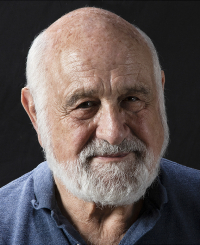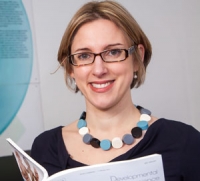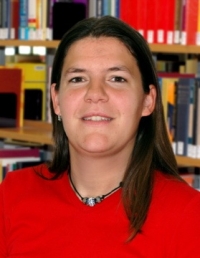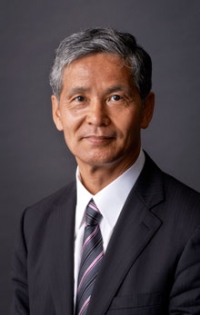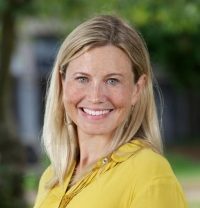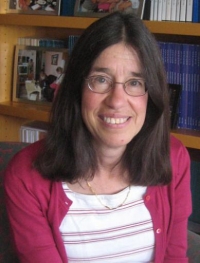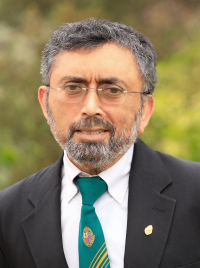Mind Reading: Human Origins and Theory of Mind
Biographical Sketches: Co-Chairs
Rockefeller University
Donald Pfaff is a professor of neurobiology and behavior at The Rockefeller University, in New York. He graduated magna cum laude from Harvard College and received his Ph.D. from MIT. He is a Fellow of the American Academy of Arts and Sciences (elected 1992) and a Member of the National Academy of Sciences (elected 1994). His lab specializes in brain mechanisms underlying social behaviors, with an emphasis on molecular and electrophysiological mechanisms that underlie hormone effects on nerve cells. Pfaff is the author of several books on the brain and behavior. He received the 2005 Award for Excellence in Professional and Scholarly Publishing (medical science category) of the Association of American Publishers for his book, Brain Arousal and Information Theory (Harvard University Press, 2006). He has been the recipient of a National Institutes of Health MERIT Award.
Salk Institute for Biological Studies
Terrence Sejnowski is a Howard Hughes Medical Institute Investigator and professor and director of the Computational Neurobiology Laboratory at The Salk Institute. He is also professor of biology and an adjunct professor of physics, neurosciences, psychology, cognitive science, and computer science and engineering at UC San Diego. He is director of the Institute for Neural Computation and director of Training Programs in Cognitive Neuroscience and Computational Neurobiology at UC San Diego and serves on the CARTA External Advisory Board. The goal of his research is to build linking principles from brain to behavior using a combination of theoretical and experimental approaches ranging from the biophysical to the systems level. He is founding editor of Neural Computation and President of the Neural Information Processing Systems Foundation. He is a past recipient of the Presidential Young Investigator Award, and was Wiersma Visiting Professor of Neurobiology and a Sherman Fairchild Distinguished Scholar at the California Institute of Technology, and is a fellow of the Institute of Electrical and Electronic Engineers. With Patricia Churchland, he co-authored The Computational Brain (Bradford Books, 1992). He was elected to the Institute of Medicine in 2008, to the National Academy of Sciences in 2010, and to the National Academy of Engineering in 2011. He is one of only ten living persons to be a member of all three national academies.
Biographical Sketches: Speakers
California Institute of Technology
Ralph Adolphs is the Bren Professor of Psychology and Neuroscience and professor of biology at the California Institute of Technology. He also holds an adjunct appointment in the Department of Neurology at the University of Iowa. Dr. Adolphs received his Bachelor's degree from Stanford University, and his Ph.D. in neurobiology from Caltech. He did post-doctoral work with Antonio Damasio at the University of Iowa, beginning his studies in human neuropsychology, with a focus on the recognition of emotional facial expressions.
University of Southern California (Emeritus)
Michael Arbib is an Adjunct Professor in Psychology at UCSD and Emeritus as University Professor, Fletcher Jones Professor of computer science, and professor of biological sciences, biomedical engineering, electrical engineering, neuroscience and psychology at the University of Southern California. Born in England in 1940, Arbib grew up in Australia and received a B.Sc. (Hons) in pure mathematics from Sydney University. He received his Ph.D. in mathematics from MIT in 1963. After five years at Stanford, he became founding chairman of the Department of Computer and Information Science at the University of Massachusetts at Amherst in 1970, and remained in that department until his move to USC in 1986. Michael Arbib's main contribution to CARTA addresses the question "how did the brain get language?" He has used computational modeling to assess two complementary themes. (i) Comparative neuroprimatology: Comparing the brains, behaviors and social interaction of extant monkeys, apes and humans to ground hypotheses on our last common ancestors with monkeys and apes and the changes that must have occurred to equip Homo sapiens with a language-ready brain. (ii) To work back from computational models for neurolinguistics to contribute to an EvoDevoSocio approach to the cultural evolution whereby humans went from pantomime via protolanguages to diverse languages, equally privileging signed and spoken languages. A current concern is with implications of such a framework for the architecture of the built environment. His current research focuses on the ABLE Project (Action, Brain, Language, Evolution) linking data on brain mechanisms in macaque, chimpanzee and human within an evolutionary framework. He also explores the possible roles of neuroscience in the architecture of the built environment. Arbib is the author or editor of over 40 books, including How the Brain Got Language: The Mirror System Hypothesis (Oxford University Press, 2012), the edited volumes Language, Music and the Brain: A Mysterious Relationship (The MIT Press, 2013) and From Neuron to Cognition via Computational Neuroscience (with James Bonaiuto, The MIT Press, 2016), and his single-authored book When Brains Meet Buildings: A Conversation Between Neuroscience and Architecture (Oxford University Press, 2021), https://global.oup.com/academic/product/when-brains-meet-buildings-9780190060954.
Arbib designed and co-chaired CARTA’s public symposium, “How Humans Came to Construct Their Worlds,” held on October 11, 2024.
Summary: At a global level, Homo sapiens have reshaped the planet Earth to such an extent that we now talk of a new geological age, the Anthropocene. But each of us shapes our own worlds, physically, symbolically, and in the worlds of imagination. This symposium focuses especially on one form of construction, the construction of buildings, while stressing that such construction is ever shaped by diverse factors from landscape to culture and the construction of history embodied in it - and more. After a brief look at birds building their nests as an example of variation on a species-specific Bauplan, we sample a broad sweep of cultural evolution and niche construction from the earliest stone tools of Neanderthals and Homo sapiens through the Neolithic and the rise of cities to the formal and informal architecture of the present day. Finally, we explore the ways artificial intelligence may further change how humans construct their mental and physical worlds.
Abstracts and videos of the public talks, along with bios of the speakers, are available at https://carta.anthropogeny.org/events/how-humans-came-construct-their-worlds.
University College London
Sarah-Jayne Blakemore is a Royal Society University Research Fellow and professor in cognitive neuroscience at University College London (UCL). She is leader of the Developmental Cognitive Neuroscience Group and her group's research focuses on brain development in human adolescence. Sarah-Jayne studied experimental psychology at Oxford University (1993-1996) and then did her PhD (1996-2000) at UCL with Professors Chris Frith and Daniel Wolpert, investigating self-monitoring in schizophrenia. Sarah-Jayne is actively involved in public engagement with science and has an interest in the links between neuroscience and education. She co-authored a book with Professor Uta Frith called The Learning Brain: Lessons for Education (2005) and sits on the Royal Society Vision Committee for Science and Mathematics Education. She is editor-in-chief of Developmental Cognitive Neuroscience.
University of Portsmouth
Juliane Kaminski is a senior lecturer in the Psychology Department of the University of Portsmouth (UK). Before that, she was the group leader of Evolutionary Roots of Human Social Interaction at Max Planck Institute for Evolutionary Anthropology in Leipzig, Germany. She was also a junior research fellow at Churchill College and a member of the experimental psychology lab of Cambridge University. Kaminski has published over 40 papers in scientific journals on questions around comparative cognition. She also published a book focusing on dogs' understanding of the world they live in. Kaminski completed her Ph.D. at Max Planck in 2005.
Northwest University, Xi'an, China
Tetsuro Matsuzawa is a former Director of the Primate Research Institute of Kyoto University, Japan. He is currently the Academic Advisor at Chubu Gakuin University, Japan, and an Invited Professor at Northwest University in Xi'an, China. Matsuzawa has studied chimpanzee intelligence both in the laboratory and in the wild. His laboratory work is known as the "Ai project". Since 1977, it has focused on language-like skills, the concept of number, and working memory. The participants include a 48-year-old female chimpanzee named Ai, her 25-year-old son named Ayumu, and others who live in a community of 11 chimpanzees, comprising three generations. The working memory of young chimpanzees may be superior to that of humans (https://www.youtube.com/watch?v=ktkjUjcZid0). The fact led him to the "Cognitive Tradeoff Hypothesis". In parallel with his efforts, Matsuzawa has also studied wild chimpanzees at Bossou and Nimba, Republic of Guinea, West Africa, since 1986. The Bossou chimpanzees are known to use a pair of stones as a hammer and an anvil to crack open oil-palm nuts. The long-term research revealed topics such as the 100% lateralization of handedness when using a stone hammer, the critical period for learning nut-cracking between the ages of 3 and 5, and the social learning process known as "Education by Master-Apprenticeship," as well as grand-mothering in chimpanzees, among others. Matsuzawa attempts to synthesize fieldwork and laboratory work to gain insight into the minds of chimpanzees, our evolutionary relatives. He has received several prizes, including the Purple Ribbon Medal of Honor, the Jane Goodall Award, and the Person of Cultural Merit award from Japan. He has published numerous articles and books, including "Primate Origins of Human Cognition and Behavior" (Springer, 2001), "Cognitive Development in Chimpanzees" (Springer, 2006), "The Mind of the Chimpanzee" (Chicago University Press, 2010), and "Chimpanzees of Bossou and Nimba" (Springer, 2011).
Harvard University
Jason Mitchell is a professor of psychology at Harvard University. Dr. Mitchell completed his undergraduate degree at Yale University and earned a Ph.D. at Harvard University. He employs functional neuroimaging (fMRI) and behavioral methods to study how we infer the thoughts, feelings, and opinions of others (i.e., how we mentalize) as well as how we reason about counterfactual experiences. In 2010, he was awarded the Janet T. Spence Award for Transformative Early Career Contributions from the Association for Psychological Science and, in 2012, the Troland Research Award from the National Academy of Sciences. His work has been supported by the National Science Foundation, the National Institutes of Health, and the John Templeton Foundation for Positive Neuroscience.
Hunter College CUNY
Diana Reiss is a cognitive psychologist and professor in the Department of Psychology at Hunter College and the Animal Behavior and Comparative Psychology program at the Graduate Center, CUNY. She directs a research program on dolphin cognition and communication at the National Aquarium in Baltimore and is a research associate at the Smithsonian’s National Zoo in Washington D.C. where she investigates elephant cognition. She was director of the Marine Mammal Research Program at the Osborn Laboratories of Marine Sciences at the New York Aquarium and co-chair of the Animal Enrichment Program of the Wildlife Conservation Society (WCS). Dr. Reiss served as a member and science advisor of the Animal Welfare Committee of the Association of Zoos and Aquariums (AZA).
Dr. Reiss’s research focuses on dolphin cognition, communication, comparative animal cognition, and the evolution of intelligence. She pioneered the use of underwater keyboards with dolphins to investigate their cognitive and communicative abilities by investigating how they would respond when provided with more degrees of choice and control. Dr. Reiss and her colleagues demonstrated that bottlenose dolphins and Asian elephants possess the rare ability for mirror self-recognition, previously thought to be restricted to humans and great apes. Her efforts also involve the rescue and rehabilitation of stranded marine mammals. Her advocacy work in conservation and animal welfare includes the protection of dolphins in the tuna-fishing industry and efforts to bring an end to the killing of dolphins in the drive hunts in Japan. Her recent book, The Dolphin in the Mirror, was released in 2011.
University of Washington
Jessica Sommerville is an associate professor in the Department of Psychology, and associate director of the Center for Child and Family Well-being, at the University of Washington. She completed her B.Sc. at the University of Toronto in 1997 and her Ph.D. at the University of Chicago in 2002. Following a post-doctoral fellowship, she took her first faculty position in 2003. In 2007, Sommerville was named a Kavli Foundation Fellow. Her research focuses on the origins of social cognition in infancy and early childhood. Sommerville currently receives funding from the National Institute of Child Health and Development and the John Templeton Foundation.
Harvard University
Elizabeth Spelke is the Marshall L. Berkman Professor of Psychology at Harvard University. She previously taught at MIT, Cornell University, and the University of Pennsylvania after studying at Harvard, Yale and Cornell. Spelke studies the origins and nature of knowledge of objects, number, geometry, persons and social relationships through research on human infants, children, and adults. A member of the National Academy of Sciences and the American Academy of Arts and Sciences, her honors include the Distinguished Scientific Contribution Award of the American Psychological Association and the William James Award of the American Psychological Society.
UC San Diego School of Medicine
Ajit Varki is a Distinguished Professor of Medicine and Cellular & Molecular Medicine, Emeritus Co-Director of CARTA, Emeritus Co-Director of the Glycobiology Research and Training Center at UC San Diego, and Adjunct Professor at the Salk Institute. He received basic training in physiology, medicine, biology, and biochemistry at the Christian Medical College (CMC), Vellore, The University of Nebraska, and Washington University in St. Louis. He also has formal training and board certification in internal medicine, hematology, and oncology. Varki is the executive editor of Essentials of Glycobiology (Cold Spring Harbor Press, 4th Edition, 2022) and is recipient of a MERIT award from the NIH, and an American Cancer Society Faculty Research Award. Honorific elections include the American Academy of Arts and Sciences, the National Academy of Medicine, the American Society for Clinical Investigation, and the Association of American Physicians. He is also recipient of the three highest honors in his field, the Karl Meyer Award of the Society for Glycobiology, the International Glycoconjugate Organization Award and the Rosalind Kornfeld Award for Lifetime Achievement in Glycobiology. He is recognized for creating the first major open access research journal (J. Clin. Invest., 1996) as well as the first major open access textbook (Essentials of Glycobiology, 2009). He was honored with the Old Cottonian of Eminence Award at the 150th Anniversary of Bishop Cotton Boys School, Bangalore, India, (2015) as well as a Distinguished Faculty Medal and Oration at his medical school alma mater, CMC, Vellore. Significant past appointments include: Co-Head, UC San Diego Division of Hematology-Oncology; President of the Society for Glycobiology; Editor-in-Chief of the Journal of Clinical Investigation; Interim Director of the UC San Diego Cancer Center, President of the American Society for Clinical Investigation, and UC San Diego Associate Dean for Physician-Scientist Training. Varki's research interests are focused on a family of cell surface sugars called sialic acids, and their roles in biology, evolution and disease. Currently, active projects are relevant to the roles of sialic acids in microbial infectivity, the regulation of the immune response, the progression and spread of tumors, aging, and unique aspects of human evolution. His group is particularly intrigued to find multiple interrelated differences in sialic acid biology between humans and our closest evolutionary cousins, the "great apes." These differences are a signature of the events that occurred during the last few million years of human evolution, and appear to be relevant to understanding several aspects of the current human condition, both in health and disease. Varki’s book, Denial (Twelve, Hachette Books, 2013), explores a novel "Mind Over Reality Transition” (MORT) theory that denying reality and personal mortality was a key step in allowing the emergence of a full theory of mind, and in the origin of our species.




